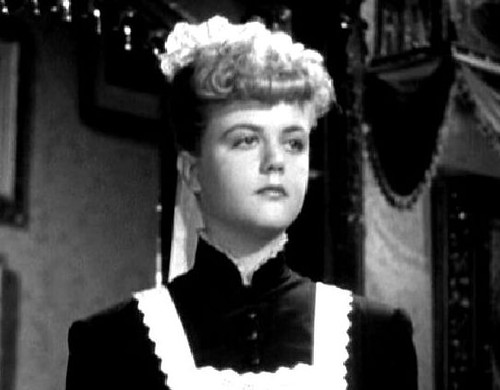Today being Halloween, I wanted to do a post on a horror movie, so I picked one that TCM ran earlier this month, the quickie Mark of the Vampire.
In a small village somewhere in the rural part of either Bohemia or Moravia, what would now be the Czech Republic, the residents have a fear of vampires, to the point that people put some plant they call "batthorn" (something that as far as I can tell is totaly fictitious) on their doors and windows to keep away the vampires. That, and a lot of people don't want to go out after dark. Things get worse when one of the wealthy villagers, Sir Karell Borotyn (Holmes Herbert) is found dead at his desk in the study of the old castle where he lived. This just before the planned wedding of his daughter Irena (Elizabeth Allan) to Fedor.
The townsfolk are practically in a panic, and they believe the killing was done by a vampire -- specifically, Count Mora (Bela Lugosi) or his creepy daughter Luna -- because the dead man has marks on his neck that sure look like they could be fang marks, and because he was drained of all his blood. Obviously, men of science don't believe this sort of stuff, and the authorities send in someone from the big city, police inspector Neumann (Lionel Atwill), to investigate.
Also coming in is Professor Zelin (Lionel Barrymore), who hopes to disprove the notion that it was a vampire that killed the elder Borotyn. Together with Irena's guardian, Baron Otto (Jean Hersholt), they start investigating. Time is of the essence, because Count Mora seems to be menacing poor Irena, and nobody would want to see her turned into a vampire. She starts acting erratically, scaring the bejeezus out of poor Fedor.
Even though Mark of the Vampire has Lionel Barrymore and Bela Lugosi, it feels like it's not even up to the level of a programmer. I think a lot of that is down to the script, with an ending that feels like a deus ex machina and some actions that seriously require suspension of disbelief. The tone also feels mixed, like it's too much of a comedy at some points and a serious film at others. Looking at Wikipedia suggests that MGM's original intention may have been for an 80-minute programmer-length movie that got cut down, something that certainly seems plausible.
Still, Mark of the Vampire is an interesting enough misfire, and if you do watch it, you've only spent an hour of your life on it.







